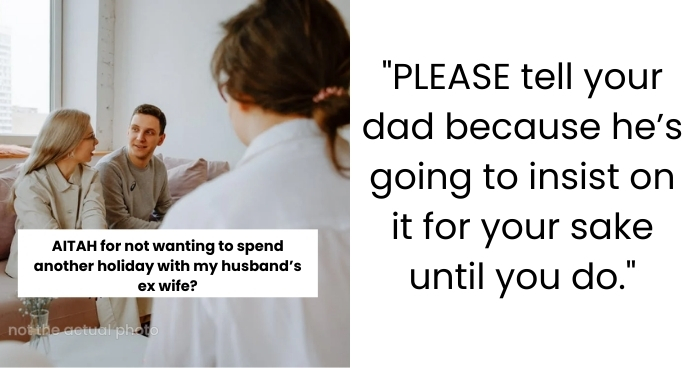Woman begs to not spend the holidays with husband’s ex wife, he says, ‘it’s tradition.’ AITA?
After all, you’ve managed the complicated relationship of your husband Jake’s holiday rituals with his ex-wife Susan for a few years, and it is all for his daughter, Jenna. It was always an uncomfortable, unjoyful arrangement, where everyone came for Jenna and not for the spirit of celebration. As if you hoped the tradition would have ended grow up now that Jenna’s all grow up, especially when Jenna even said she found it boring and not needed. Telling Jenna to express her feelings to her parents felt like a sensible next step but because of it, Susan was understandably upset and accused you of using Jenna as a pawn for your agenda. Jake is suggesting that Jenna may not have decided to move on your feelings from Jenna may not be the move, which he doesn’t totally agree with Susan, but still… Right now, you are confused and guilty, needing clarity.
Read for more info Reddit

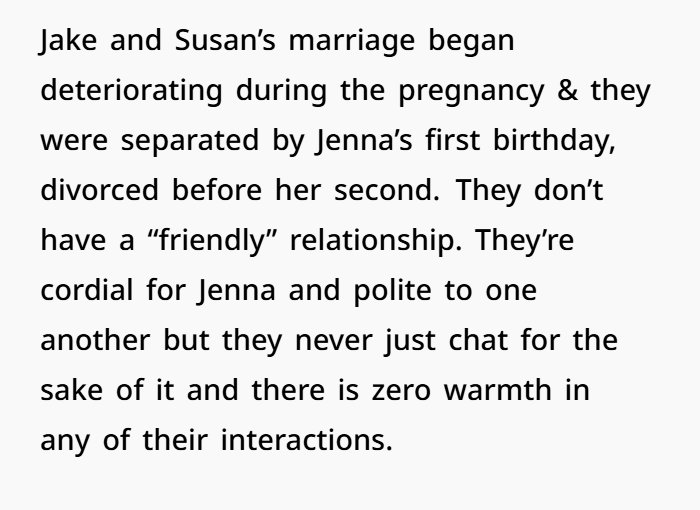
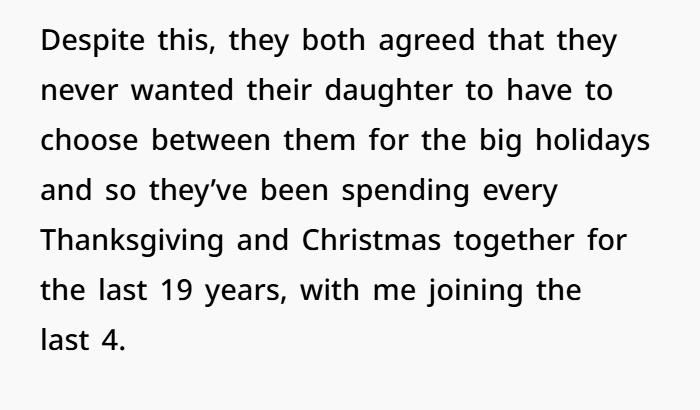




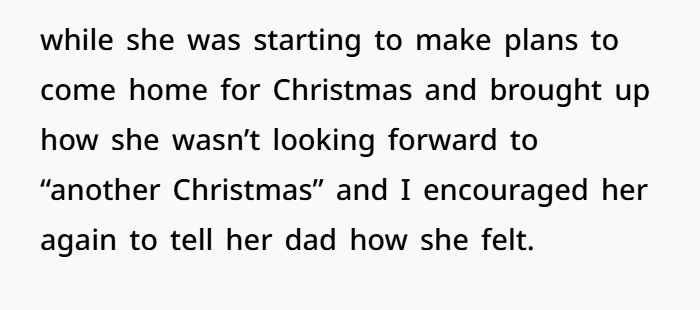
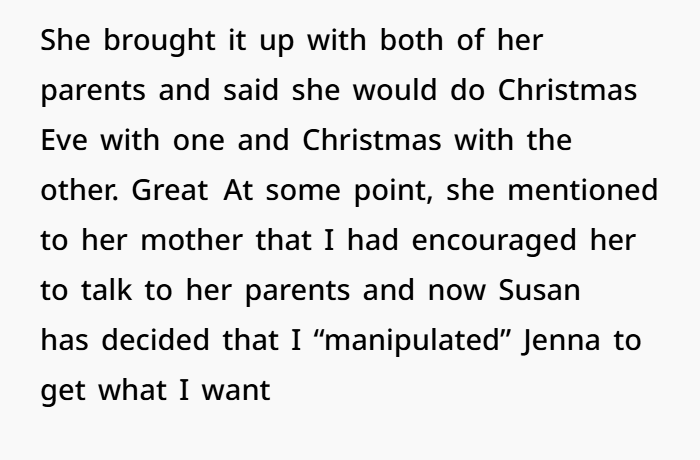

Understanding the Dynamics and Finding Resolution
- Co-Parenting Dynamics Post-Divorce
Susan and Jake’s holiday tradition likely stems from an effort to avoid forcing Jenna to “choose sides,” a common concern among divorced parents. Many co-parenting experts stress the importance of maintaining shared traditions for the child’s benefit, particularly during their formative years. However, as Jenna is now an adult, continuing such practices often becomes unnecessary and even counterproductive if they no longer serve their intended purpose. Research on adult children of divorced parents shows that they typically prefer flexibility and autonomy in holiday planning once they are older, rather than being tethered to longstanding routines. - The Accusation of Manipulation
Susan’s reaction might stem from feeling blindsided or from interpreting Jenna’s decision as influenced by external factors—specifically, you. However, it’s crucial to note that manipulation requires intent to deceive or control, and from your perspective, you merely encouraged Jenna to advocate for herself. This aligns with the principles of fostering independence and effective communication in young adults. Susan’s emotional response might reflect her own attachment to the tradition rather than genuine evidence of wrongdoing on your part. - Jake’s Position and Its Implications
Jake’s near-agreement with Susan’s perspective could stem from a desire to diffuse conflict or from guilt over disrupting a 19-year tradition. It’s not uncommon for individuals in co-parenting arrangements to prioritize peace with their ex over addressing the needs of a new spouse, even unintentionally. While this is understandable, it’s not sustainable if it dismisses your valid feelings and contributions to the family dynamic.
Moving Forward: Practical Steps
- Clarify Intentions with Jake
Sit down with Jake and calmly explain your perspective. Emphasize that you supported Jenna advocating for her own preferences, not because you dislike Susan but because it seemed like the natural next step as Jenna grows into adulthood. Highlight how important it is for you to feel that your partnership is based on mutual respect and understanding, especially in delicate situations like these. - Reassure Jenna
Jenna’s decision to split the holidays is ultimately hers, and it’s important that she knows you support her autonomy. Reassure her that you’re proud of her for expressing her preferences and that the ensuing drama isn’t her fault. - Address Susan’s Concerns (if Necessary)
If it feels appropriate, consider having a civil conversation with Susan to clear the air. Acknowledge her feelings without accepting unwarranted blame: “I completely understand why you’d feel upset, but I encouraged Jenna to share her thoughts because I thought it was best for her to communicate directly with you and Jake.” - Set New Traditions
Use this transition as an opportunity to start building new, more inclusive holiday traditions that work for everyone. Whether it’s a quieter Christmas with Jake and Jenna or hosting your own celebration, focusing on creating a warm and festive environment can help reduce lingering tensions.
Here were the top rated comments from readers in response to the OP’s post:

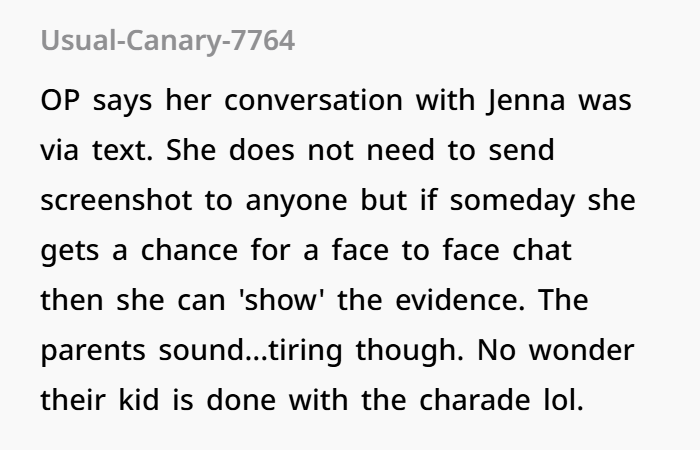
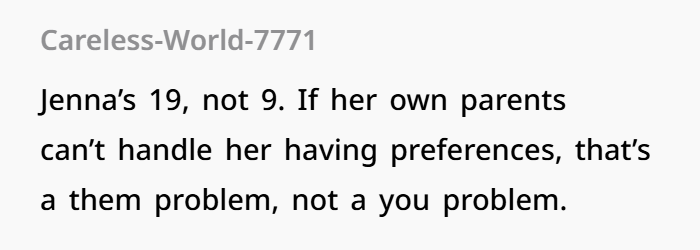
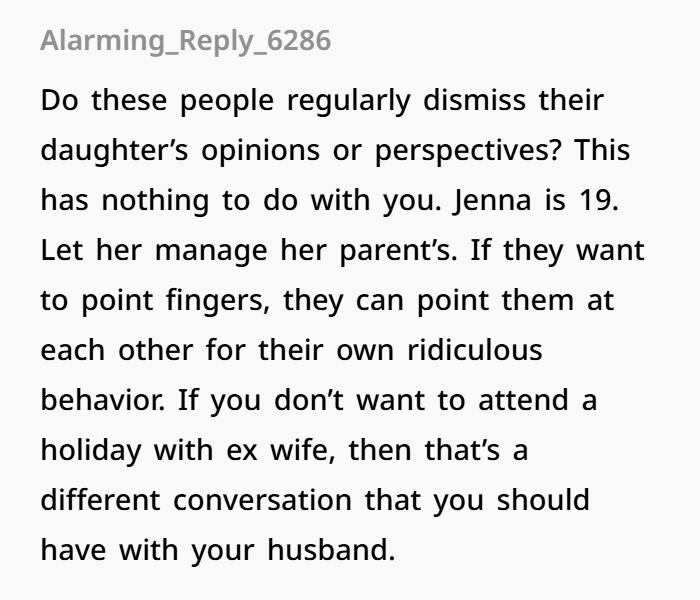
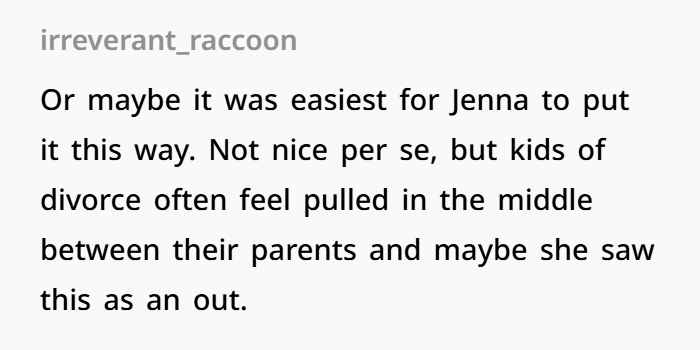



You’re not the villain here; you’re someone trying to balance a complex family dynamic while ensuring everyone’s needs—including your own—are met. By addressing concerns with empathy and clarity, you can likely resolve this tension and move toward a more harmonious holiday tradition.

